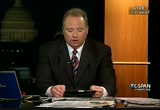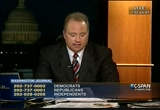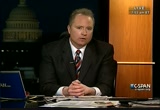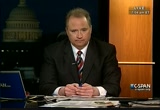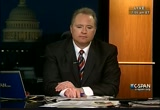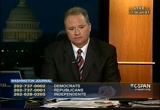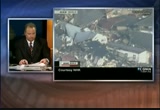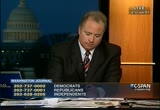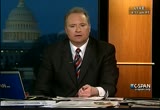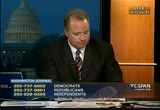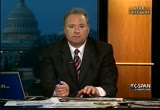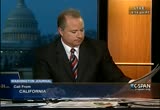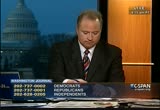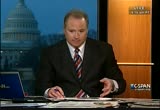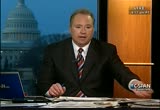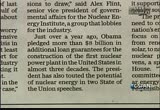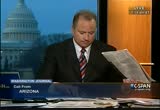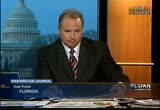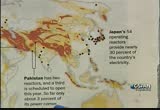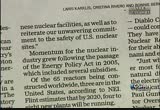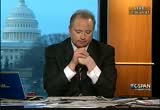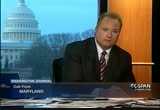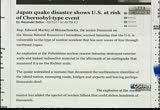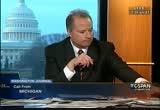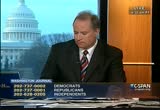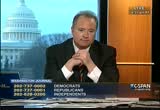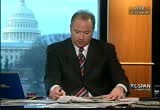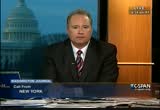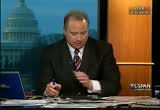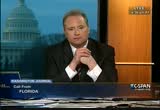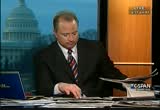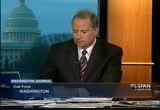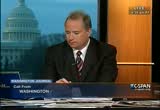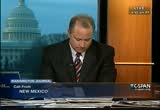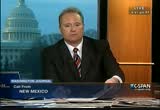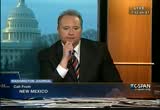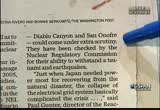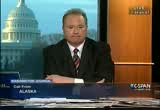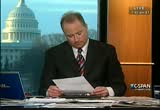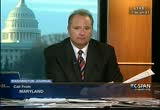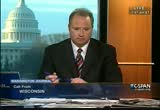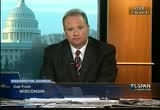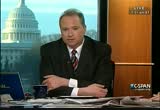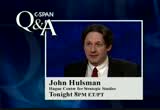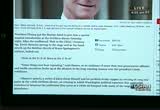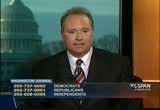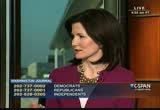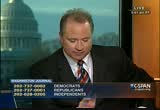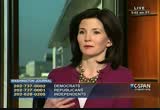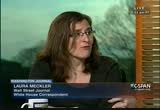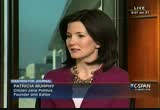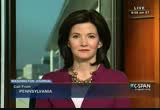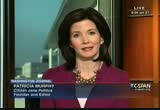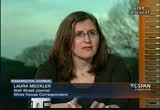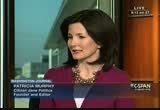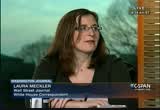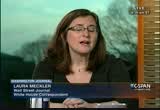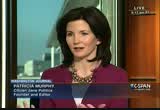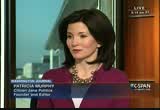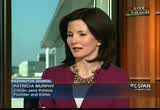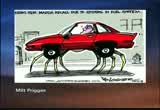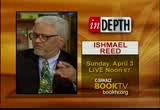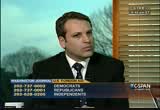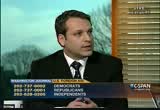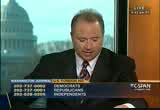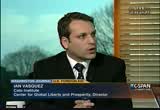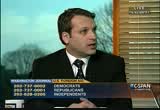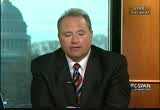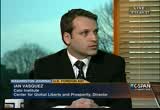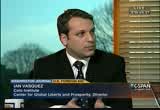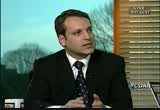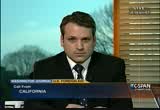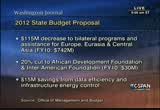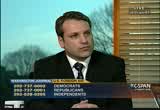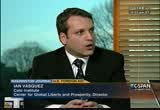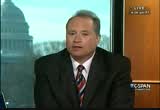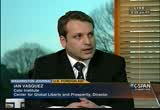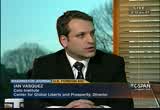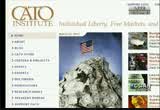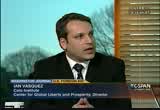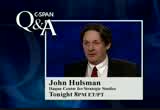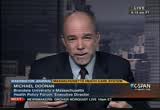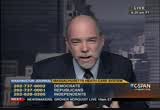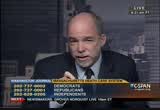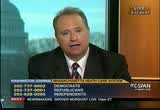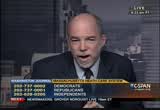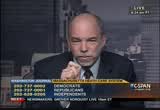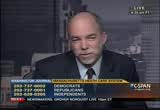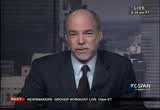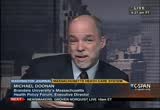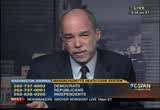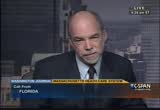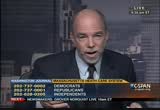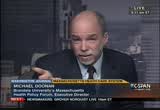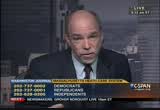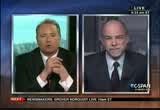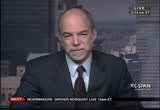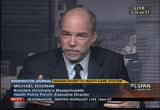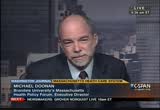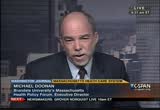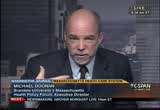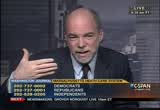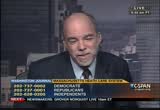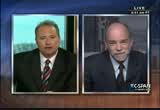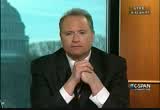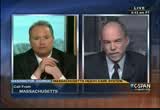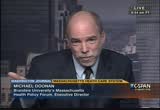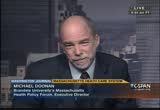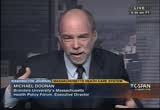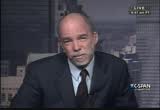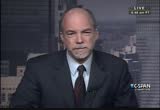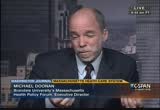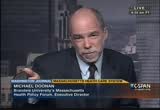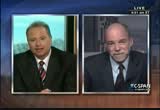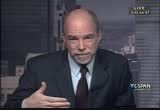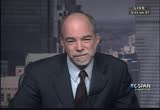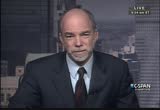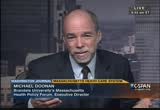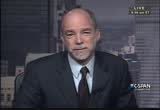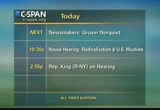tv Washington Journal CSPAN March 13, 2011 7:00am-10:00am EDT
7:00 am
cutting foreign aid. and later, an analysis of the massachusetts statewide health care coverage program with university's massachusetts health policy forium director michael doonen. woverlwoverl is next. . . -- "washington journal" is next. [captioning performed by national captioning institute] [captions copyright national cable satellite corp. 2011] . .
7:01 am
7:02 am
about this this morning. this is making most of the headlines at this point. what should the effect be a hone u.s. nuclear program? for republicans, 202-737-0001. for democrats, 202-737-0002. for independents, 202-628-0205. we will get to your calls in a couple of minutes. jonathan sobel is online with us. paint a picture of japan. caller: i am supposed to -- i suppose that we will start with the nuclear situation. they have started to pour see water on the nuclear reactors to
7:03 am
cool them down. remember, there was a dramatic explosion yesterday from hydrogen building up in the first one. >> talk to us about the concerns -- host: talk to us about the concerns. caller: we are getting regular updates from outside the plant. they are peaking as the authorities from inside the vent steam from inside the reactor. it is not clear how long they're staying at elevated levels. expertsen talking to that say that exposure to those highest levels in short. it may not cause serious effects to humans.
7:04 am
at the same time there is not much information on radiation levels. to the north of they are detecting elevated levels. japanese media are reporting that there are perhaps 160 people in the media imbecility -- vicinity of the plants that are expected to have some level of radiation poisoning. but it is not clear if they are showing systems. >> explain the process of the evacuation to less. how has this been working in such a confusing situation? >> the dark rural communities, but they have expanded the radiation evacuation's old -- evacuation zone.
7:05 am
rescue workers are trying to get people out in the conditions where roads are damaged. there is debris in the area. what we have heard is that the immediate area within 10 the kilometers has been evacuated. perhaps that was a few hours ago and they have managed to get people out of range. the real issue is whether or not it is safe enough. or is it being dictated by the actual area where people are safe? perhaps people living out of that further a range would be better off. given what is going on it is not possible. host: between the earthquake and the tsunami, what are the latest figures that you are hearing about in terms of those who are dead?
7:06 am
what is the toll in terms of damages elsewhere? what can you tell us? caller: starting with damages, you concede that with it being broadcast around the world communities are being wiped out. whole areas have not been reached or searched around the city. they said in a news conference earlier that they were certain the death toll half would be 10,000. people are talking about an all- time death toll being in the tens of thousands. host: what is the impact on the country as a whole. what have top officials been
7:07 am
telling people so far? caller: they have been regular in the news conferences and on television telling people to behave calmly. not to panic. here in tokyo there are very few signs of real panic. some companies are moving their staff further away until things become more clear. but for the most part things in tokyo are going on fairly normally. host: what else should we know? what else are you looking for over the next few hours? the next few days? caller: we will still be at the top of list. if things go well as the weeks
7:08 am
go on, we will be looking economic impact. the country is suffering an electricity shortage. we are being warned in tokyo to expect rolling blackouts. shops are being told to turn off their lights. the economic impact from the destruction, it may also take time to actually get the rest of the economy working because of the support infrastructure. host: thank you for the update this morning. the little bit of context, here's a piece from "the washington post." it goes like this.
7:10 am
of what has been happening in japan. first call this morning, democratic line, bobbie. caller: good morning. everyone is leaving out the fact these guys have a system that has stopped. if refrigeration is down, reaction will get hotter. whenever it is that they are using, that is what they have to get done.
7:11 am
i have been doing this for 20 years and they have got to have some kind of refrigeration. host: thank you for your thoughts. in japan they have released sea water around one particular site to try to clean -- cool it down. oregon, josh, what should the impact be on u.s. nuclear policy? caller: hello? host: let's try orlando, florida. jake? caller: for having me on the show, you look like you happy with care. host: new york, are you there? caller: yes, how're you doing?
7:12 am
even with three mile island, there were no deaths from that. what concerns me out is something that -- we should be more concerned with analyzing the situation that happened there. it seems to me that things are getting a bit radical and and we should be more concerned by the people that have died in this tragic earthquake. host: that being said, there is certainly plenty of coverage on the human factor here. the nuclear aspect is getting a terrific amount of coverage as well. is it too soon to think about the new -- the u.s. nuclear
7:13 am
program? they are writing about it. caller: it is the wave of the future. france has 80% nuclear energy. we are the most progressive country in the world, but we are returning to the stone age as far as energy is concerned. it is amazing what we are doing, going backwards instead of forwards. host: we will read more from this story from "the washington post."
7:14 am
postal fresno, california, jeff. caller: -- host: fresno, california, jeff. caller: we have been seduced by this approach. this notion that all of the danger of nuclear power has disappeared and we should jump on the bandwagon. i was appalled when obama started talking about nuclear power. the gravity of this disaster is humongous. i do not think it is a feasible
7:15 am
form of our. this is a healthy warning for our country to not go any farther forward with nuclear power. host: scott, good morning. caller: i feel the same way as the man that just called. this proves the republicans are wrong about nuclear energy. i am an independent. every time that i've boat. but i am with the democrats on this one. host: appreciate your thoughts. texas, you are up on the republican line. caller: every morning we hear democrats and liberals talking about the it idiots telling us how terrible energy is if it is nuclear or anything that they do not agree with. this was a terrible thing that happened in japan.
7:16 am
but it is not anywhere near the amount of people that die in america because the democrats cannot even have sex without screwing it up and a boarding babies. people call in every day and talk about the cost of war and lives in iraq but in the first obama two years more black babies were murdered by black voters than it more democrats in the entire war. host: the headline from "the miami herald" says "scramble for survival." this is in northeastern japan. "the chicago tribune," "aftershock." here is that photo again. the picture of an official in protective gear checking for signs of radiation.
7:17 am
the atlanta journal, constitution. the nuclear accident may be the worse since chernobyl, the damage is expected to take years. the story from the associated press from the prime minister of japan, he is calling the disaster the worst crisis in japan since world war ii and is urging the country to unite. looking at nuclear power, representatives of the industry say is too soon to know what impact could be have on u.s. policy.
7:18 am
it is very hard to draw conclusions according to a group that lobbies from the industry. the president of the united states pledged more than $8 million to the construction of the first nuclear power plant in three decades. host: benjamin, a democrat, california. caller: if you look at the plants that are having these issues over there, they are old ones. maybe the industry and our technology is kind of old.
7:19 am
we should have been developing this. host: prescott, arizona. caller: how is it going? host: but the fact should this have, if any, on the u.s. energy program? caller: can you hear me? host: yes, sir. caller: i think that nuclear energy is inherently dangerous. in arizona, where i live, they have more tax incentive in canada to do solar energy that they do in arizona. renewable energy is not perfect, but there are solutions.
7:20 am
why do something that has the potential to radiate so many people we have lots of desert and wind. host: sylvia, miami, florida. caller: this is a wake-up call. the containment bubble is intact but leaking radiation? this is a clear sign that this is dangerous. i really hope that there will be a call for the u.s. not to support the expansion of nuclear energy.
7:21 am
perhaps we cannot produce the same care what using nuclear as with solar, but what if we irradiated the midsection of the country? calling action to renewable resources and other dangerous forms of energy. host: more of the video there from nhk. this one is from "the new york times." host: we will continue to take your calls on the u.s. nuclear
7:22 am
energy program and what the future of it should be as we continue to take a look at these papers. but the next call comes from frank in new york. are you with us? caller: this is a wake-up call. you can see that mother nature is controlling everything. better to go with oil, coal, geothermal rather than nuclear. begin developing to take care of gas from coal. nuclear material, of we cannot even get rid of the waste. we just have our head in the sand as far as most of our economic energy policies. we are not listening to the world, we are listening to our
7:23 am
politicians, which is disgraceful as they are not doing the job and there should be a revolution in this country. host: westchester, this photograph from reuters has a man on a bet -- bicycle riding through. transportation areas were cut off, as we know. westchester? caller: there used to be a large amount of interest for things that never melt down. liquid helium and it should be investigated. you have got to get smart. that is what i would say to the republic, get smart worrying about it.
7:24 am
host: this story from "the post" talks about seismic plants around the world. 14 percent of reactors, -- 14% of reactors are in seismically risky areas. japan provides nearly 30% of the country's electricity. they point out that the new plant in iran has been plagued by technical problems. four of the u.s. reactors are in california. about 20% of the country's electricity comes from nuclear energy. saying thatthey're the republican takeover of the house catapulted one of the
7:25 am
industry's biggest backers ahead of the energy and commerce committee. host: democratic line, tucson, good morning. caller: we should be taking a good look at our nuclear power plants here. the ones you mentioned in california are very near the san andreas fault. one of them is right next to the ocean.
7:26 am
so, a giant earthquake along the fault line, we could be looking at the same thing here and the rest of the country is downwind. arizona has one, what happened if it went down wind? i think that nuclear power is a good form of energy but it is very dangerous compared to solar energy. i also wonder why people still do not explore those solar powered satellites from the 1980's. host: we appreciate your calling. twitter.com/c-spanwj is our twitter address. we would love to hear from you there. here is one of you were riding -- i am asking the japanese
7:27 am
authority to tell the truth about what this link -- about what is leaking. silver spring, maryland. caller: i am sure that engineers to study what happened in japan will come up with better plants that will be more resistant if there are future earthquakes. the problem that the industry really has is that it started with three mile island and shortly after, "the china syndrome" came out." that effectively shut down the nuclear industry altogether. solar powered satellites, i remember that from the 1970's but the star trek science- fiction conventions. that would be a good solution, beaming the energy to forms of antennas in the desert.
7:28 am
7:29 am
host: michigan, independent biden. hello. caller: considering the state of the world, in light of what is going on, between the total tragedy in japan and quite frankly the tragedy taking place in this country, a couple of good guests you might want to consider for the benefit of your viewers would be dr. helen l. mccotter. a pediatrician from australia. she wrote the book -- i only
7:30 am
read input about five times a few years ago. one of the better authorities on nuclear weapons and nuclear energy. nuclear madness. that is it. another good guest would be about nadir in terms of solving the problems we have in this country. one thing that i would like to mention about nuclear energy, we had representatives from detroit edison 30 years ago, after a while there would no longer talk with me. they talk about winners, losers, subsidizing this and that. it is so safe, why not rely on the private sector?
7:31 am
why did the government have to ensure it through the price anderson act? if i may, a couple of comments about c-span itself. if you put this on line to a vote every 30 days to 20 days, i bet you that they would win out rate -- out right. i wanted to point out your bias. you get republicans and democrats, myself in socialist. your bias this way and that way. paul, you showed your bias this morning when you had that caller from texas. i think you are biased against the retard community by cutting them off so quickly.
7:32 am
7:33 am
host: casey, a democratic line, good morning. are you there? caller: i am actually calling because many of the articles you are reading from are failing to point out that the fact that the cause of the problems at the nuclear power plant are not from the earthquake itself, they are from the tsunami that flooded the cooling systems. there have been several power plants that went to automatic shutdown. in terms of comparing what is going on in japan to what is going on here is faulty in and of itself.
7:34 am
i would like to say that i am a die-hard democrat and a huge fan of saving the environment and all of that, as well as renewable energy. at the same time, japan has failed savings and backups. this is simply the failure of a cooling system at this point. i wish that all of these senators would stop being so alarmist. they have a political agenda and that is not what is happening now. host: this is from "the new york times."
7:35 am
7:36 am
the pressure released by americorps melt them, explosions would be contained. designed in 1960, online in 1971. as far as yucca mountain wasting money, the president shut it down. john mccain would have been building 25 new nuclear power plants across the station. it is hard to listen to people attacking a nuclear power industry that has been on hold for 40 years. we have learned from our mistakes. chernobyl was the same thing.
7:37 am
it is just a shame. i think that nuclear power is a great asset to mankind. host: charles, washington, what is the name of your town? caller: when-at-chee. center of the state, right close to seattle, and it is the reason i am calling. i understand that we have a problem with energy. i do lean toward solar and that type of alternative energy. i can be at the nuclear reservation within 45 minutes.
7:38 am
it is a big reservation. it is a desert. they have reactors there. the problem being -- they do have the waste. the waste of containment takes in the ground close to the columbia river. in richmond they have downriver people. they are concerned, given the fact that no one knows how to properly dispose of nuclear waste, the river people are afraid that the nuclear waste leaking from the tanks will eventually reached the columbia river and contaminate the drinking water supply. i realize that we have quite the energy problem.
7:39 am
the plants may not be safe, but the real problem is that there is no set way to dispose of nuclear waste that is generated from these plants. superfund, for years that they are doing in richmond at this time, they have not cleaned it up. in my opinion we should develop other types of energy. solar. something that we can at least control. how are we going to dispose of this waste? what if it ends up in richmond? host: we will move on and discuss politics in the next
7:40 am
segment. this message from twitter is -- we need the power, build nuclear plants where they do not have earthquakes. the next line is from santa fe, new mexico. go ahead. caller: the thing about nuclear energy is that it is a poison developed by man with a half- life. that is the waste as well. it is the silliest way to boil water to make steam to power turbines. i know that there are over 5000 sites over the border on mexico
7:41 am
and the united states. it comes close to the surface, there are hot springs up and down the colorado ballet. and geothermal, if there is anything this country can do, it is to drill and pomp. there is no reason in the world that we cannot take ocean water and direct the steam and which we could use the water for drinking back into the of over. not to mention the extraction
7:42 am
potential left over in the process. in the navy we have known this for over 100 years. for the purpose of creating energy and driving the turbines that run the propellers, cooking their food and drinking water. this is easy technology and something that we should be considering. host: as we look ahead to more discussions of nuclear power, this is from "the washington post."
7:44 am
good morning. are you there? caller: yes. host: go ahead, please. caller: i question the hypocrisy of this whole deal. a natural disaster for japan with 10,000 dead. obviously there is a debate about nuclear reactors. this is probably not the right moment to be getting into this, democrats, republicans, independents, it is sad to me that we are not focusing alive
7:45 am
is that were lost. but we are getting into a debate over nuclear power when it is 30 years before anyone will probably build another one. there are a lot of hurting people in japan. host: democratic line, susan. caller: first of all, i endorse the opinions expressed by my republican friends. before we turn this into an argument against nuclear power, we should look at how many people died in nuclear accidents in the united states. 11 people were killed in the bp oil rig explosion.
7:46 am
reputable environmentalists understand the nuclear power has to be a part of the solution. global warming cannot simply be addressed through other solutions. there will not be enough energy generated. nuclear has to be a part of the mix. the amount of construction -- destruction involved would be less. that is all i have to say. host: independent caller, wisconsin, good morning. caller: this sounds extreme, but i am hoping that we have a meltdown and the world sees a
7:47 am
catastrophe that they cannot hide from. our republican friends will tell you how nuclear power has to be part of the solution but what america needs to wake up to is that the energy industry, municipalities could start generating their own utilities of energy. help is one of the best solutions we have. if we had put half as much money into researching renewable sources of energy for this country, turning it into our version of democracy, whatever has been done going back to world war two, i am sure that we would have bio-diesel that is working fine.
7:48 am
all that you have to do is go back to dupont. he has fought tooth and nail to keep the independence and municipalities from generating their own energy. improving the quality of the ground, there is no waste matter with you are done. it is over 90% diesel fuel right from the ground. it has no toxic emissions. and you cannot make marijuana in it. host: thank you for your time. we want to give some other callers. we will take a short break but later in the program we will have a segment on foreign aid and health-care issues. after this break, laura meckler
7:49 am
will join us. we will also talk to patricia murphy. we will talk about all things political for the next 45 minutes or so. here is a look at the arrivals at last night's a gridiron dinner. we will get more coverage during our political segment. here's a look at some of the arrivals. coming up shortly.
7:50 am
7:51 am
organizing the dinner. they politely said no. but you can look at the letter at our website. on-camera we were able to see some of the arrivals. here is a copy of the letter that was sent. again, there is some news coverage coming from the event. in the meantime, just a couple minutes of news. >> we will hear all about the news at noon when we replace sunday and network tv talk shows. today topics include the earthquake aftermath in japan, the u.s. response to libya, and funding for the federal government. david gregory welcomes chuck schumer on "meet the press." as well as mitch daniels. at 1:00 on "this week" from
7:52 am
abc, a live report from japan. "fox news sunday" finds chris wallace welcoming mitch mcconnell, marked one -- mark warner, and sex be chambliss. at 3:00 it is "the state of the union." dick durbin, jon:, kevin mccarthy, and james witt. at 4:00 p.m. we have to face the nation. bob schieffer speaks with senate members along with mary landrieu of louisiana. brought to you as a public service by the networks and c- span. rea errors begin again at noon eastern.
7:53 am
listen to them all on c-span radio in the washington, d.c. area. you can download it hasn't iphoneap. >> one quarter of mortgages are under water this morning. you cannot run an expansive do everything for a policy given this reality. host: advising governments and businesses about the political and financial risks of today and tomorrow. tonight his insight into the intersection of money and foreign power. this weekend on c-span 3, ed
7:54 am
mullah medford of the participation of african- americans in the civil war and our 30th president. and the 175th anniversary of the dade massacre of florida. the first american war fought over slavery. for a complete weekend schedule online, go to c-span.org to have the schedule e-mail to you. >> potential republican presidential contenders have been stopping in key primary states. this weekend michelle bachman is in nashua, new hampshire at a fund-raiser for the republican state committee. >> "washington journal" continues. host: time for a look at politics going on in washington.
7:55 am
with us is laura meckler and patricia murphy. we took a look at the arrivals at the gridiron dinner last night. national journal headlines, " obama and daniels, he got the special musical instrument -- introduction at the dinner. as the band struck up a familiar chord he belted out -- born in the usa. [laughter] patricia, what does something like that say? guest: as much as everyone can
7:56 am
talk about politics, it is still a relatively closed culture between those that are indeed. you can think that you know a lot, but there is so much going on behind the scenes. so much business is done without the american people's knowledge. it is an uphill climb every day. gridiron is a good example of that. guest: this is a case where you see people all political persuasions commingling. if you talk about insider washington, gridiron is always exhibit a. it is one of the most insider clubs out there. that is why they do not want c-
7:57 am
span cameras there. even with a lot of tense moments and issues debated, you often find that people in washington are willing to laugh together at the end of the day. host: we are talking politics and policy. here are the lines for democrats and independents. today we have with us laura meckler and patricia murphy. the most significant story of the last week? guest: there were two. in terms of politics. domestically there were
7:58 am
continued discussions on the budget. republicans in the senate are battling the white house to discover how significant do cuts will be. the forces of colonel gaddafi were bearing down on the rebels. the u.s. government is attempting to figure out what to do about it. guest: the budget is really tying down democrats and republicans. they cannot even agree where they are as a starting point rather than getting together as a compromise. i think that this is about policy and the 2012 election. this will be the issue. the second topic is just a brief hearing sponsored by peter king
7:59 am
about the radicalization of islam in the united states. it was sort of the storm to forgocalm -- storm before the calm. the hearing itself was not that remarkable. congressman keith ellison, the first muslim elected to congress, had a very emotional moment. it was the media explosion of the day. the friday earthquake in japan has taken over most of the media coverage. host: what happens next? guest: i was not at that hearing, i do that know if anything was more attractive in
8:00 am
terms of muslims in this country. that is what these hearings can to produce. and i do not think we learned anything new about -- and the focus was people living in the united states attracted to radical islam. how big of a threat that they are -- i did not think that we learned anything that we did not already know. guest: i would not disagree with that. not as much done on the house side under benny thompson, but it has not been an area where that particular committee has tread much territory.
8:01 am
i don't think they tread much new territory on thursday. i think you can check that box but the republican leaders have the message that they want to be pushing about jobs and the economy. i don't think he didn't sell any favors by holding that hearing. host: i want to get back to the budget story. congress is looking at another continuing resolution. one papers is that gop freshmen are uneasy about the latest top gatt bill. a republican from kansas city could be harder to pass than the last one. why would fresh chef, patricia murphy, be attracted to this particular one? guest: these freshmen came in on a wave of the demand from their
8:02 am
days to get their hands around the budget, to reduce the amount of federal spending. if you do just another cr, you are not tackling the issues. and it is not doing what the house-passed bill accomplished in the first place. you are defending -- defun ding a lot of programs that are popular with democrats. the freshman some are saying that they are not reported they are kicking the can down the road. host: puts a lot of pressure on the gop leadership. guest: this whole dynamic has a lot of pressure on them. let's make clear for the viewers that we're finding the year that we are currently in.
8:03 am
this is to figure out how much money they will have for the rest of the year. in order to get this settled, it will have to be a compromise. everyone knows that. except perhaps the freshmen republicans who do not won a compromise. it is interesting to hear that they are complaining about this. you also have complaints on the other side. the white house does not want to keep doing these short-term continuing resolutions. they feel like eventually every one of these -- there are spending cuts in each one. if you keep doing this, it eventually you look at things that democrats are not comfortable cutting at all. at first they went for low hanging fruit, things the white house had already identified where money had not been spent and was needed and other programs.
8:04 am
if you get to another one and there are more cuts, it is dying by at thousand knicks. host: our first caller's from hamilton, ohio. caller: first of all, i am unemployed public safety workers. i have been watching the news and everything going on in wisconsin. what is send a happened in ohio. -- soon going to happen in ohio. i cannot understand how it has become such a big political thing. it is about the politics, not about the people anymore. that is about all i can say about it. it really baffles me. and here i am, i am close to being homeless pretty soon. it is a sad situation. our country has become so politically the way it is.
8:05 am
host: we appreciate you calling in. let's take a look at the scuffle outside the wisconsin state capital on the front of the nyt. what is your take on what happened there and what it all means? guest: it is a very fundamental class of visions. that caller gets to that. it does not mean anything but politics, but it does mean thing. we have seen this play out in wisconsin in dramatic fashion. the republican majority in the legislature and the governor voted successfully to strip public employee unions of most of their collective bargaining rights. that is the basic question on whether union should have this power or that the budget problems are so severe we cannot afford that. what are our priorities?
8:06 am
and it has come to blows in some cases, an incredibly active protest by the union members in that state, in the capitol building for weeks. and 14 democratic senators trying to prevent this bill from coming up, unsuccessfully as it turned out. they found a way to do it. this a been a fundamental clash of what priority should be in terms of government spending, and how powerful unions should be. host: host: patricia murphy. guest: almost every state in the country is grappling into massive budget shortfalls. most of that is driven by the cost to the states of employees and their pensions. everyone has to grapple with it. now when we have a lot of newly elected republicans as governors, they are going in and using it as an opportunity to
8:07 am
rewrite the collective bargaining laws, because it makes their jobs a lot easier if they do not have to negotiate with the unions to bring down these budgets. what has been fascinating to me is that this is turned into a national debate, just a microcosm of a national debate with both parties pouring resources into the that -- into that debate. this is a fight that both political parties believe they have a huge political opportunity in if they win it. this is a lot like the budget debate and we will see a repeat of this debate over and over and over again. guest: state and local governments are really hurting. there have been jobs lost at the state and local level. it's indicative of what you're saying. even after the economy starts to come back, maybe it is starting
8:08 am
now, in the private sector, it takes a long time for states to catch up. host: moving on to pennsylvania, thomas, a republican. caller: can you hear me ok? i have a question for both laura and patricia. and the question is this -- i am a registered republican. i am a union member. i am also a government employee. my question is, why are the republican party constantly attacking the citizens of this country on our benefits, on our retirement benefits, and ways of cutting the budget and not addressing the 20 million illegal aliens in this country? it seems that if you address that problem, that would be the first big dent in solving our fiscal crisis in this country. host: first, patricia murphy.
8:09 am
guest: the reason they are not tackling immigration head-on is that in some of the states there is a political downside to that. you'll see a significant lack of leadership in that in both parties. but the reason the republicans are coming in and trying to balance the budgets and also go after unions at the same time is that that is a traditional goal that they have had. democrats have been traditionally the big union allies. you are republican and a union member which is much less the case. the democratic party has not had a great relationship with unions over the last couple of years because they have and not gotten a lot out of the union's political wish lists taken care of. they did not get card check pass, in the health care bill there were provisions that would not help unions very much. it look like that was going to
8:10 am
hurt them. the democratic party had to shore up the union for the wrong political base. sometimes when you cannot understand why politicians are doing something, there's probably a political downside to it. guest: and immigration is a very complicated issue. i would not say that is going to solve the state budget issues. there may be some overlap, but those are not going to get their hand in hand. in order to pass comprehensive immigration budget legislation, something that the president would be willing to sign, it will almost certainly have to include a provision that allows people here in this country illegally, some 11 million people, to be gaining citizenship. that is what republicans referred to as amnesty. republicans are more interested in shoring up the border. there has been quite a bit down
8:11 am
on that. but that is what talking points are focus on. an actual comprehensive solution which has eluded congress for years now has some difficulties is to for each party. there's absolutely no side that that is going anywhere. host: lots more phone calls coming in but i wanted to get back to libya. you have probably heard that the arab league yesterday endorsed a no-fly zone over libya. a complicated process, if you listen to the experts here. but the "washington post," this headline. what's to happen next, patricia? guest: nato members will meet on tuesday to discuss the no-fly zone as well. these are the first -- these are part of the decision making process for the obama administration. they are loath to do anything that is not a multi-national
8:12 am
effort. they do not want to get involved in libya in any way or any military action where it is just the united states acting alone. there's a huge political downside to that if it does not turn out a way that they wanted it to. at the same time, the president has been very cautious on libya. he is getting heat on it. even senator kerry came out and said that the president is to show more leadership on this issue. there some areas where the president has been reluctant to take a serious leadership position. he was such an audacious campaigners, and he has been very cautious assessing his options. host: laura meckler, on top of that, wesley clark says that libya is not worth the risk.
8:13 am
guest: i do not know whether it is worth the risk or not. i will point to a story in the "journal," or senior military officials see this. they seem to be against the no- fly zone. it was largely needed -- to make sure that the president's options are all on the table. but in truth, the pentagon tends to be very opposed to this idea. we had one senior official saying that is so problematic to put boots on the ground. i worry about no alternative to the government. we have seen that movie before. they are concerned about a repeat of iraq, where this would be an easy military situation, let's get saddam out of there. and then 10 years later we are
8:14 am
still there. the military is very cautious about military intervention. think the no-fly zone is no big deal, throws some planes in the air in your done. but what happens next? i think that is why it's in the president be so cautious. he has his own military people cautioning the full course here. international's consensus as well. host: water bird, connecticut on the democrat line. caller: a comment than a question. warren but that -- buffet said that there was class warfare. john maynard -- john boehner says that the country is broke. the top 1% control 40% of the
8:15 am
wealth. there are tax cuts in december as they were to create jobs. now we are broke. that does not make a lot since. to balance the budget, pretty much using middle-class and poor, all are they going to give us tax cuts for the rich 1% or are they going to keep those and try to balance the budget? guest: it is interesting because when you talk about raising taxes, is usually raising taxes on upper-income people. republicans are done with raising taxes. it is not because they want to tax the rich but because they do not want a tax anyway. cutting spending -- a large percentage of federal spending is directed at the poor people. head start, the schools, a large number people who want low- income family, help for women,
8:16 am
infants, children, many federal programs target lower income people. if you need to target spending, you learned by nature moving more toward the side of lower income people. there is federal spending that house more upper-income people, farm subsidies, some people who would disagree that that is the case, but they do help some upper-income farmers. there are a lot of spending cuts that affect the poor. it depends on your outlook. if you ask the democrats, that would have no problem increasing taxes on the top 1% as the caller said. the president wants to earn -- raise taxes on any family earning over to under $50,000 a year. so far that has been a nonstarter. guest: part of the reason that they cannot agree on little things in the big things is because they have a huge
8:17 am
philosophical differences on how to balance the budget. democrats want to raise taxes on the wealthy and businesses. everyone wants to reform the tax code which is very difficult. republican will not put tax increases on the table. for them, it is a complete non starter. they want a balanced budget by reducing spending. that deficit addition -- commission says that you need to do both. each has one side that they will not pay attention to. guest: republicans are dragging this debate right now. it is not should we cut spending but how much how quickly. >> if you look at the vote in the senate this week, the house- passed budget bill that two more than the democratic cr. there is more leverage on the republican side and even more support from the senate which is dominated by democrats.
8:18 am
it is amazing to watch and the republicans absolutely have the upper hand. the democrats are in denial on the right now. host: we expect them to put out their budget next month. guest: that is for next year. host: people will be looking for specifics. guest: what a lot of people look for is what would they do about entitlements spending. there's been a lot of debate over very small slices of the pike, non-defense domestic discretionary spending. there's a variety of credit -- domestic spending programs. buzzy the things that you think of when it is government but that is a very small part of the total budget, about 12%. what are they going to propose on social security, on medicare and medicaid? these are tough problems to solve, particularly the health care problems.
8:19 am
how to control spending over time. the solutions are not easy as we saw during the health care reform debate. the democrats tried to cut spending from these programs in order to use the money for the subsidies, and even that was difficult to get through. this will not be easy. guest: you think it would have been done that by now. another huge spike we will see happen is the question of raising the debt ceiling. this is something united states has to do by statute in order to make sure the united states does not default on its debt. if we default, there would be enormous, enormous repercussions around the world. this is when the house freshmen come back into the scene. they are saying they will not vote to raise the debt ceiling without significant commitments on entitlement reform. that is a first in decades that we're seeing people agreeing to not only look at entitlement reform -- is truly the third
8:20 am
rail of american politics. host: gordon in sarasota, florida. you are on the independent line. caller: my comment is directed to ms. meckler. earlier you commented and made a comment that the republican freshmen were complaining. i take issue with that. it has to do with the evaluation of the currency. you do not have to look to any other country to see what occurs when the government starts printing its currency. at least you understand that most taxes are directed toward the port. anyone holding currency which constitutes a creditor, and printing worthless money is defrauding anyone that has any of this money. it is the greatest tax on the
8:21 am
poor people of this country by evaluating the currency, and they make comments that the republicans are complaining because they do not want to devalue the currency, i found our rages and reckless. guest: just because they are complaining does not mean that the composer not legitimate. a lot of people complain about things that are wrong. other people view them as misplaced. i was not attempting to take sides. host: frank is on the line from buffalo, new york. caller: i wanted to make a comment by the -- that was a good statement from the guy from florida. and the young republican talking with the silver tongue, complaining about not happy with the way that things are going.
8:22 am
that's look at japan. maybe we should think about this a minute. in japan, they have the devastation. all the other countries are sending help. oh, but guess what? you did not hear people from egypt, iran, afghanistan, anybody like that sending any help to those people. but we spend billions of our budget for those other countries. so wake up, america. let's get some money back into those countries. host: moving on to albuquerque, new mexico. kenny, a democrat. caller: thank you for taking my call. some really good debate going on this money. i agree with my republican colleagues there, i cannot wait to see ron paul trying to get around to the debate, because it
8:23 am
is interesting how they lock him out in the past. also talking about entitlement spending, i think we should address some of the subsidies going to oil companies if you want to be serious about balancing the budget. i think what the gridlock is showing in washington is that we desperately need a third party. that is when we can come together as americans and get our best ideas to solve these complex but important issues. thank you for taking my call. host: let's touch on the oil part of that comment. the situation in the millies, rising gas prices, we had speaker boehner come out this week to talk about the high prices. there is this story here -- can either of you make the connection between higher gas prices, economic conditions, and politics? guest: gas prices are one of
8:24 am
the areas that affect americans the most immediately. it gets americans the most changes. it is also one thing things that politicians had the least ability to at that. there is almost nothing they can do in the short term to do anything about gas prices. thinking come out with energy plants, proposals to release the strategic petroleum reserve, which is rarely done, but there is nothing else they can do except talk about it. you have a lot of talk about gas prices on the hill. democrats and republicans will use it as an the reason to move forward on their energy plants and that is where you see completely divergent proposals and very least you to -- room to compromise. guest: obama has taken criticism from both sides of his party on. the situation in libya as i understand it is not that they are not producing enough oil and that is why we have a drop in supply. in fact, the amount that they
8:25 am
have stopped putting on to the world market has been made by other countries, particularly saudi arabia. that is not really the issue. but there is a lot of jittery ness about what has happened. those concerns tend to tie -- drive up the price of oil and that is what has happened. republicans and democrats have called on the white house to act in different ways. the white -- the president called a press conference on friday to address this issue specifically. basically there was a lot of stay the course policies. host: michael from pennsylvania on the independent line. michael, are you there? i think we lost michael. let's try another caller in pennsylvania, john, are you there? caller: i liked to talk about a fresh way of looking at things going on in the country.
8:26 am
maybe the public sector cut their wages and benefits, and maybe that is not the problem. maybe the problem is that the private sector is to love. it is to love. if you go back for years -- it is too low. the private sector starting in the 1980's, their wages and benefits started to stagnate, and in some cases to go backwards. when i was a teamster truck driver, i was making good wages and benefits. i did not care what the teachers and the cops or the school bus drivers were getting because i was getting those good wages and benefits and all boats were rising. since the 1980's, all boats have not been rising. the public sector and the private sector has been the problem to me is not that we should drop the teacher wages and benefits of the public
8:27 am
sector, which is a race to the bottom, if but we should be trying to be -- bring back the wages and benefits of the private sector so that all boats will rise again. guest: an interesting point. i think that what we have seen is that private-sector unions have declined in power, a decline in membership, if you are in private sector who are unionized to put that pressure on the private companies to increase union benefits. perhaps all of the growth in union membership has been on the public sector. perhaps that is some of what is going on here. i do not know enough about the details to say this for certain, but i think that it is a lot easier said than done to increase everyone's wages. guest: public sector employees,
8:28 am
you cannot outsource them to india. no one in india will pick up your garbage. that is an advantage over private sector employees random. and when you have to look of what is going on, everyone is concerned about the jobs numbers. the democrats have in their mind a number of unemployment that if they do not get down below, by 2012, they assume they will be out of jobs. they know how of said americans are. -- how upset americans are. going to the polls and voting them out our party is one of the ways americans feel like they can do something about it. host: 1 headline we read recently by rigid from the "new york times." nearly all the contenders from both parties were already in the race by now before.
8:29 am
this time, none have really plunged in. why you think that is, laura meckler? guest: it has been very slow to get off the ground. and i have to say, there is some sense of relief about that, because it seemed like last time the race went on forever. the fact that is going to only last a year and have, as opposed to two full years, it may not be the worst thing in the world. part of the factor is if no one has fully jumped 10, it puts new pressure on the others to jump in. people move with in tandem. once one major candidate johnson, we will see others follow. host: in 2010, the early as candidates to get in did not win.
8:30 am
john mccain got so early he went broke before he had to have the renaissance and came back and got the nomination. if you look at the past, it is so expensive to jump in early. it is like an arms race. as long as no one else is out there fighting, you do not have to get in there either. i think people learn their lessons from 2008. host: time for a couple of more calls. caller: i wanted to comment. i think the media has framed this fight in wisconsin that the republicans are evil and union- busting. if you could comment on why no one is bringing up the point that other states such as texas, virginia, they have done away with collective bargaining for their public-sector unions long ago. there were no riots. there is no outrage. this is about union dues and the ability to fine-tune -- all
8:31 am
money to one party, i.e., the democratic party. guest: you see a different approach because of different cultural approaches. in madison, wisconsin, that is where the union movement was born. that is why there is a much heed around that debate in this particular state. above and beyond that, to repeat myself, every state is grappling with the situation that the pie is getting smaller and they have to start giving it up in different ways. employees had very expensive packages to pay for. so it was running the budget of a lot of the states into the ground. republicans traditionally are not allies of unions. they can show this to their base voters, that they will turn around on unions.
8:32 am
i think there's a political calculation for some of those republicans. host: good morning. caller: the three of you may be at of touch when it comes to how well the the up -- the most wealthy art. the upper 1% do not need a tax break. it should probably rise to 50% i know this firsthand about how the wealthy spend money. they spend it like it is monopoly money and like it does not matter. they will buy several million- dollar homes that they do not need, ocean houses, i see people remodeled kitchens, spending hundreds of thousands of dollars in one kitchen, when you and i would be more than happy with those kitchens that they remodeled for the rest of our lives.
8:33 am
i know people who have spent $20,000 a week for a first-class vacation wherever they want to go in the world. and i know people who will take these kinds of vacations dozens of times per year, spending money like i say, i think the american people are out of touch with the kind of wealth and the taxes on the rich people could go up. i think it was somewhere -- even if they amounted to $100,000 for a wealthy family, i do not think it would amount to that much. guest: i can assure you that most journalists are not in the category of $20,000 for a week's vacation. [laughter] certainly not working at the "wall street journal." i think you have a allies that are very much willing and have made that point that, even the
8:34 am
president of the united states. he wants to see taxes for families over $250,000 a year ago of. i think that there are people quite willing to raise taxes on the upper income. the republicans control the house right now. they are not among them. guest: the caller did not mean to make the point, but that is the republicans on why you should not raise taxes. they spend money opulently. they do buy houses, and they only -- they buy cars, they buy clothes, they buy everything that you could imagine. and there are americans and the other end of that transaction getting a piece of that type. if you increase taxes for the wealthy, they will not be able to spend that money in it will not end up helping the economy.
8:35 am
that is the wire republicans say you should not raise taxes on the wealthy. host: south carolina, independent line, welcome to the program. caller: has anyone noticed that when we get tax cuts, that the price of gas goes up, that the prices for your medication goes up, your insurance goes up? across-the-board tax cuts have never worked for me. when george bush said it is your money, you spend it the way you want to, that was a lie. i had the spend my money the way i had to and not the way i wanted to. you have expensive things like gas. and in libya like you just pointed out, there is not a lesser amount of gas coming in, it is just that it is coming in from somewhere else. the oil speculators are using these hot spots in the middle
8:36 am
east just to be able to raise the prices of their product. host: a final thought from each of our guests beginning with patricia murphy. guest: the amount of gas is not any different. i do not work for the "wall street journal," but i think the prices will go up to what the market can bear. the people have more money, they all more have to go out and spend. i think that is something that politicians are grappling with every day. guest: there was done across the cut rigid across-the-board tax cut in december, and president obama noted on friday that it could use some of that money for the increased cost of gas. at least you have that cushion. i do not know that there is a relationship between the fact that taxes were cut in december and the situation in libya that has prompted uncertainty on the oil market causing the price of gas to go.
8:37 am
but it may feel that way. host: our guests have been laura meckler and patricia murphy. thanks a lot of but the key. time seems so sure. thanks a lot to both of you. time seems so short. we will take a look at a program and what it might be in for for the national health care efforts. michael noonan will be our guest. we will also spend some time in a couple of minutes looking at the u.s. foreign aid. our guest will be ian vasquez. plenty of time for your calls. in the meantime, a look at politics through the eyes and hands of political cartoonist.
8:39 am
>> ishmael reed has written over 25 books, including "airing dirty laundry," and "barack obama and the jim crow media." sunday, april 3, at noon eastern on c-span2. watch previous programs at our website where you can find the entire weekend schedule. >> "washington journal" continues. host: our guest is ian vasquez,
8:40 am
thank you for being here. in the topic is u.s. foreign aid. we will invite the viewer is to weigh in on what many people talk about, just 1% of the federal budget. but as you look at foreign aid, what is your take on what the country is getting back for that aid? guest: i do not think it is getting back much of anything. we have now had more than six decades of experience with rich countries transfering $2 trillion to developing countries and you cannot show that foreign aid is effective at promoting growth for economic policies that are consistent with economic growth. it may help to support dictatorships and regimes that have some of the worst economic policies on record.
8:41 am
it puts the united states in a position that it was in egypt of supporting the very cause of poor people's problems to begin with. host: as we start looking at the new budget cycle and a lot of problems like earthquakes and tsunami is, what shall we be looking at? guest: we should distinguish emergency humanitarian aid with aid intended to develop -- for long-term economic failure. that is the failure and we should abolish those programs. aid is not important to economic development. all the rich countries today that the way without it. they have changed their policies on the run. it is frustrating in washington any time you talk about economic development and developing the world, there is a lot of
8:42 am
importance to talk about. the conversation becomes in one of the rna. the evidence does not show that aid is important to developments. in many cases, it is harmful. i find the foreign aid discussion a real distraction to what really matters. host: a quick look at the state department's budget on the screen for fiscal year 2012. the next budget cycle, $50.9 billion. the request last year was $51.4 billion. in fiscal year 2010, 49.3 billion. roughly $50 billion. you have a sense of how that money is broken down? guest: a lot of that is for state department-tight spending. not all of it is actually for economic development. some of it is for military aid and a lot of that is
8:43 am
questionable. some of that is for emergency aid and humanitarian assistance. probably about 20% of the actual aid. if i were to break down the those numbers into what actually could be considered economic development aid, and would probably come out of the $28 billion. host: we would get to some of the numbers as we go to the segment with ian vasquez of the cato institute. a short segment of hillary clinton in front of the house appropriations committee. >> i think it gives us tools that are in addition to and different from our military tools. i think most americans do not want to see young americans going to war. they would rather see as prevent war, working with like-minded nations to try to help societies
8:44 am
resolve conflicts, which is what our tip -- our diplomats to every day. and it is a lot cheaper than sending to -- sending america to war one more time. it promotes our security but it does not substitute for defense, but it is an important part of our national security arsenal. host: ian vasquez, your thoughts. guest: i disagree with that. i have our real problem with this particular administration's approach of combining more than is usual in the past in the united states diplomacy, defense, and development spending. these are very different missions. when the cold war ended in people were looking back at the effectiveness of the foreign aid during that period, people realize that it was not very good, and advocates of foreign- aid said because now that the soviet union is not around,
8:45 am
spending by the united states government can finally be affected. i think that was the naive assumption. the united states will always have a national interest it will mix into its foreign-aid budget. it is still going on and that is why you find the majority of aid is still determined national security and other concerns of the united states, legitimate or not. and that affects the economic development aid. if the country knows that it is important to the united states for whatever reason, it is not going to pay attention to using those economic development funds. well. and that is what happened. host: our first caller's from madison, wisconsin, bob on the independent line. caller: i think you have gotten to this a little bit. a lot of the categories are a shell game. when you say foreign-aid to me,
8:46 am
the biggest thing that comes out is the whole military thing. like, basically, this country has become a banana republic. and banana republics cannot run empires anymore or go out and do things with armies that empires do. the prior program segment, the speakers talked about what should be cut and they omitted defense. we should at least had a 50% cut in defense, bring all those military people home from afghanistan and iraq, and jesse's and desist all that activity. we in wisconsin right now, we are suffering from having to pay for all of this stuff because
8:47 am
there is obviously the connection to the federal budget from state budgets and all the way down. people have had it. they keep scoring around with this type of spending when we are a banana republic, it is just ridiculous. host: ian vasquez. guest: i am partial to reducing u.s. commitments to all sorts of conflicts around the world that do not have a direct connection to national security. i do not think that the u.s. should be the world's policeman, and it gets us into trouble when it thinks that we can shape events and the outcomes of events in every corner of the world, which is essentially the position that hillary clinton has taken when she testified the other day in congress and pointed to the fact that the u.s. is providing subsidies to every country in the world, programs and every world ridgy
8:48 am
every country of the world except north korea. what kind of priorities are in place in those programs? is there real well thought out justification? i do not think so. there is no just -- no question that aid is helping to promote national security interests. there is a lot of room to cut back. and i agree with the idea that the defense department is a large bureaucracy that needs to be cut back. host: more detail from the office of management and budget on the 2012 budget request. $27 billion would go to investment in developing economies. nine $20 billion to health programs in developing countries, $4.2 billion for displaced persons, refugees, and victims of armed conflict in natural disaster. global poverty and hunger, $1.4 billion. $87 million for u.s. diplomatic
8:49 am
and development expertise in the numbers go on from there. what else you see in those numbers? what is worth it in your view? guest: as i say, i think we have to separate the humanitarian spending from the rest of it. when people think about foreign aid, they are thinking about the very term, that this kind of spending actually aids companies -- countries rather than hinders their development. the largest chunk of those numbers is exactly intended for those purposes. i would get rid of that because in fact, this is a model that is very outdated. it is a top down approach to development. washington sends money to governments in the developing world so that they can finance development. development does not happen that way. no country became rich based on the model.
8:50 am
it is really more of a reflection of the updated thinking and of the desire for the state department and the u.s. government to have yet another way of trying to influence, but would not very good results. it is in every country in the world. host: a caller from london, sheila, welcome to the washington journal. caller: how can the united states aboard foreign aid when it is bankrupting cannot even help its own citizens? guest: that is the question of the day, how much should the u.s. government be spending? that is why we are talking about foreign aid today. difficult decisions have to be made about what to cut and what not. in fact, probably some of those decisions are much easier than
8:51 am
others. i think the foreign-aid budget is a pretty easy decision based on its record. by getting rid look forward -- but getting rid of that alone will not solve the budget. there is much more than needs to be done. i do not think that the united states should be wasting money in that way, but cutting it is not going to solve the problems either. from chris from alexandria, va. just outside d.c. caller: i had a few issues when i hear the term foreign aid. first of the 1%, i questioned that statistic. as a government employee, i see a lot of money in the defense department going to other countries under the guise of military aid, but i do not know if that captures the intent of it being eight. take for example the commanders
8:52 am
of the emergency relief program. the department of defense spends billions of dollars on budget, off budget and supplemental spending, to build schools and other types of projects that traditionally have fallen under the guise of foreign aid. 1% captures if the that kind of spending. and with foreign aid, we are making many enemies. i have not seen the numbers, but from what i have read in different newspaper articles, a large portion of it goes to the israeli military, one of the reasons why we are low with the countries in the arab world. we would help ourselves if we did not have that kind of aid. in the law of unintended consequences, when we are giving aid to, say, african farmers,, we are jacking up our prices by subsidizing u.s. farmers, and
8:53 am
putting other farmers in africa out of business because they cannot compete, because of other farmers are given money that they do not really aren't. host: the tear from bill on the democrats' line. you're on with ian vasquez of the cato institute. caller: glad to be on. the statement that quite a few of the abominations that they're on the run without aid. -- most of the coronations got their run their own without. south korea, england, just to name a few. you can argued that we are not spending the money properly, but to make a statement at the beginning of your presentation that we did nothing -- we get nothing back from foreign aid is absolutely ridiculous. host: ian vasquez.
8:54 am
guest: i'll take the concerns of the first caller first. there is in the budget that says foreign- aid and this is the number. there are things that could be considered far an aide. it depends on how you characterize it. it is not just usaid, the u.s. aid agency, but it is the pentagon, the agricultural department, whole array of agencies and departments that spend money they could be considered foreign aid. and some of it is in the guise of military, is a very difficult to come up with a figure that everyone can agree with. as far as a and the success of countries, no successful developing country today became rich because of foreign aid.
8:55 am
certainly a lot of countries have received aid and they have achieved this despite that. south korea received large amounts of foreign aid in the 1950's, but then the united states decided to cut off aid. it was at that point that the policies in south korea changed and when in the direction of being conducive to economic growth. there were more market-oriented policies. we set time and again. -- we see that time and again. in taiwan, only once aid was cut off when the government turned around and growth started to take off. the world bank put out a report saying that it was more common to see reforms preceded by a cutoff of aid and actually as a result of a. the caller also mentioned the marshall plan.
8:56 am
the marshall plan is always the one example that aid advocate side whenever they want to talk about the successes to foreign aid. let me remind you that the marshall plan was in a program for a region of the world the was already the most -- that was already the most rich and successful part of the world for many years, and had been interrupted by many years of war. the task at hand was a rebuilding task. it had a beginning and an end. it lasted quite true years. it was very pretty it lasted four years. we're not talking about rebuilding successful societies here. these programs are going on and on forever. one of the things that we found when we looked at the marshall plan is also that actually the
8:57 am
aid to europe at that time conform to what we found generally about foreign aid today, and that is, there was no relationship between eight going to countries in europe and the subsequent economic performance. some countries of one better, some did not, but had no relationship with the aid money. in fact, the relationship was, when they started to change their policies. you could see some countries in europe recovering before the aid money came, and others only after the money came. host: our guest was educated at northwestern university, also a master's from john hopkins at the school of advanced international studies. ian vasquez is now the director for the center of global liberty and prosperity of the cadence to take. prior to that, he worked -- at
8:58 am
the cato institute. and this call is from frank. caller: i like to say that maybe we have a different perspective here. it seems to me that with the exception of israel, most of what we spend on foreign aid is really american products and defense american jobs. a friend of mine worked for companies to make ottawa center is back in the 1980's. there owner was a big republican contributors. we used to call them the kids mickey mouse white walls, and in certification to make your black walls look like white walls. we send thousands of those to the going to. -- to uganda. but it was nice, they get it all reimbursed from the government. this is what i thought foreign
8:59 am
aid was. host: any perspective from iran. -- from your end. guest: there examples like that can -- that can be found all over. they're consulting agencies in the united states, and the agencies themselves, and when your client is a recipient governments that is often corrupt or incompetent, there is a lack of accountability on both sides. if you could close the circle for how well these aids programs actually turn out. you see evidence of this mill last -- misallocation of money and waste and abuse. and there is no incentive on the part of recipient governments or lenders to actually do something about it. and a lack of accountability is a huge problem in foreign aid.
9:00 am
that is the consensus among aid advocates and aid critics. something has to be done host: this is the proposed budget for the fiscal year 2012. 100 dick keene dollars million decrease to bilateral programs and assistance to europe, eurasia, and central asia. a 20% cut to african development foundation. and a $15 million in what is being called a savings from data efficiency and infrastructure energy control. that sounds like a mouthful. anything there that appeals to you? guest: i do not know that last item is all about. you would have to ask someone who wrote that. these cuts are modest, frankly. there is so much going on in
9:01 am
the budget. we are not only supporting bilateral aid programs, but we are supporting multilateral aid organizations that, in turn, provide aid to governments in the different regions of the world. if the problem exists with this problem, it is made much worse with creating yet another layer of bureaucracy to take that and tries to manage it. the wrecker of the african development bank and regional development banks is also not very good. host: secretary geithner puts it in terms of competition and speaks about the u.s. and china. he testified earlier this week as well about the international developers and programs that are out there. here's a look. >> again, if we limit the resources to the world bank and the institutions, we will leave
9:02 am
government with no choice but to turn the countries like china who will tie their loans to conditions to help the advance chinese commercial interests rather than the broader interests we enjoy with a more level playing field. again, i know many of you have the experience of traveling in asia, latin america, and you see a dramatic expansion in the sale -- scale and scope of activity by countries like china. host: the recall behind china if there's not enough spent on development? -- could we fall behind china? guest: the best thing to do is for america to get their own house in order. the weighted do that is not your subsidizing u.s. farms abroad which is basically the call that tim geithner was making. i find it a little bit offensive that he is saying that
9:03 am
the best way that the united states can succeed in influencing the world is for the u.s. government to essentially subsidize u.s. corporations. that is just not the way that the u.s. has become successful. it has some of the best companies in the world. q. what the hell, there are a lot of policy tools that can be put in place including tax rates for corporations, so this concern is really blown out of proportion. i also think that china is making a big development mistake by following that path and they will reap the benefits, but it will exaggerate the concern that we always seem about the argument that other countries are subsidizing their exports and therefore we will subsidize exports of around the world. so far, i do not think that has been a successful policy for any
9:04 am
country. host: the it twitter, u.s. aid is a 1% of our budget and it needs some reform, but it is economically, morally, and diplomatically wise. after republican in new hampshire. good morning. caller: i agree with a lot of the points that your guest has said. unfortunately, we can argue about whether foreign aid works or does work and there are cases for both. that point is moot. this country's financially bankrupt. we are in serious trouble. i would like to go further than your guest and said it which should probably and all of it except for humanitarian efforts. u.s. tax dollars should not be going to the poor in other countries. one caller mentioned that the 1% is probably higher, and they were probably right, but just ending economic foreign aid is not going to solve the budget problem, but it should be ended.
9:05 am
our representatives were elected to represent us in the interests of the people, not people across the country. i do not mean to be called or insensitive towards these people, but enough is enough. host: mr. vasquez, your response to that caller? guest: i agree that we should cut that aid, but i do not think that we should do just because there's a crisis. why was an advocate even before the crisis occurred in the united states. host: please comment on the effectiveness of an ngo's as compared to u.s. foreign aid. guest: whether the problems with the whole industry is that there's not very much in the way reliable evaluations for aid spending and outcome. you would think that if you spent through ngo's that the outcomes would be better. i'm not sure that we have evidence to show that.
9:06 am
there are reasons to be concerned about ngo's or private voluntary organizations that receive most of their funding from the government which hardly makes them cry better voluntary. their report to the government agencies in continuing this treadmill. again, is a closed circle where accountability is not put in place. host: california on the democratic line. you are on with ian vasquez. good morning. caller: good morning. i have mixed feelings and i'm kind of confused on whether i am for or against foreign aid. when i listen to hillary clinton, that i was for it. now that i listen to him, well, i do not think that we should be subsidizing big corporations and
9:07 am
stuff, but i think we should be helping. i have mixed feelings on the subject. i will listen to the guest and tried to get more educated opinions. host: illinois on the independent line. sam, good morning. caller: we keep the tip toeing around the edges of the problem which is national debt. we will not really be able to address that until we take an honest look at the defense budget. it is $668 billion at the moment. that does not include the department of homeland security, the energy department which contains the nuclear arsenal. the point that i'm trying to make is we have 12 aircraft
9:08 am
carriers and the rest of the world has 10. the latest uss nimitz carrier cost $22 billion. the countries of australia, turkey, canada spend less on their entire defense budget than we spent on that one carrier which is the 11th and the rest of the world having 10 and no other country more than one. if we cut our defense budget in half, we would still be spending three times more than china, five times more than russia. iran has a defense budget of $9
9:09 am
billion. be in heaven's's name can we afraid of a country like iran? host: would you make of those numbers in the general idea of defense spending being too high? guest: defense spending is too high and there is no question that the united states has military superiority far and above the rest of the world combined. it will be that way for a long time. there is plenty of room to cut their and my colleagues of the cato institute have indicated exactly how much can be done in the interest of national security. the first caller mentioned humanitarian aid, but even if we recognize that it is separate or should be considered in a different way from economic development aid, that is not to
9:10 am
say that that aspect of it should not also be reformed. we have the food aid program that oftentimes has gotten developing countries into trouble because they undermine the prices of the farmers in developing countries. just last year, i think it was, "the new york times" reported the big food program in somalia, half of the aid going there was being diverted to an islamist groups and rebels for their own uses. host: the of twitter on foreign aid. "cut off foreign aid. the u.s. cannot afford it. it is often stolen that right by those in power or used badly. it causes blow back. bad years of money -- bad use of money." catoinstitute.org is there
9:11 am
website. louisiana, karen, republican. good morning. caller: good morning. i have always cringe at the thought of foreign aid. like you just said, it gets missed used by those in power. it never gets to the people who really needed. that being said, when you look at america in general, it is the same thing. as a residence of the only inhabited barrier island off the coast of louisiana, we have endured, you know, major, major storms including katrina. now we're dealing with the fallout from the bp oil spill. we have people who are getting sick on a daily basis along the gulf coast. i know this because i am a member of the cultural heritage society of louisiana and i'm
9:12 am
very active in my community and all along the coast. we cannot get anyone from our government to listen to wes to send aid our way to have these people tested. where are left to our own devices to raise money, to test these people to see what volatile organic compounds are in their blood. once we ascertain what compounds are in their blood, we have no other choice but to try and raise money to pay a doctor to treat these people. we have no one from our government to help us. i cringe even more now when i hear the words "foreign aid. what about domestic aid? what about our people here in our country you have spent their lives paying taxes? host: we will take one more call and get final thoughts from our guest. cavanaugh the democratic line
9:13 am
from st. joe, missouri. caller: good morning. i find your guest comments on south korea and i believe them to be true. if i understand correctly what he said, wants aid was cut off to south korea that it caused them to be more so -- self- sufficient and spur economic growth in their country. is that correct? guest: yes. caller: if you extrapolate that to what is going on in the united states, out these corporate tax loopholes that allow multinationals to pay $0 in income tax and basically corporate giveaways, would that cause them to get off off of their wallets and spend the money to reinvest in america? host: final thoughts from our guest on foreign aid. guest: i am certainly against
9:14 am
corporate welfare and there's a lot of that bill 10 to foreign aid like the overseas private investment organization. this is unfair to the vast majority of a organizations that have to compare with u.s. subsidized companies. there's a lot of reason why we should not be doing it. one thing i want to make clear about the whole foreign aid debate is that it is becoming increasingly evident that aid simply does not respond to the needs of poor people in developing countries. what we have seen in the last decade or more is the rise in private foreign aid from the united states. the hudson institute did a very interesting study showing private aid for religious organizations, charities, and so on are now much greater than official later from the u.s. government. this is happening all over the world. the united states is one of the
9:15 am
most generous countries in the world, it is just americans do not put too much confidence in the government's ability to promote development objectives. host: our guest has been ian vasquez from the center for global liberty and prosperity at the cato institute. kato -- catoinstitute.org is the website. 45 minutes left in "washington journal." we turn to health care. our guest will be michael doonan who runs the health policy format brandeis university. plenty of time for your calls on that. >> we will hear about the news coming up at noon eastern time when c-span radio rears the five network tv talk shows. topics on the programs today include the earthquake aftermath in japan, u.s. response to the situation in libya, and funding
9:16 am
the federal government. at noon, nbc's "meet the press" repairs and his guests include structure of new york and republican gov. mitch daniels of indiana. at 1:00 p.m., here abc's "this week." we hosted a from japan alive. fox news sunday rears a 2:00 p.m. eastern. chris wallace welcomes mitch mcconnell, mark warner of virginia, and republican senator chambliss. talking with senate majority whip dick durbin, jon kyl, kevin mccarthy, along with the former pima director. at 4:00 p.m., "face the nation" from cbs. bob schieffer talks to comment security numbers, joe lieberman , and senator mary land through
9:17 am
-- landrieu. again, the rea errors begin at noon with nbc's "meet the press," 1:00 could this week," 2:00, "fox news sunday." you can listen to them on c-span radio. 90.1 in the d.c. area. xm 132 or online to c- spanradio.org. >> americans have no savings of any time. one-quarter of mortgages are under water this morning. you cannot run an expansive new conservative -- eight neo- conservative policy given the financial reality. >> john hulsman talks about the financial world today and
9:18 am
tomorrow. his insight into money and foreign policy on c-span's "q&a. this weekend on american history tv, howard university professors on the participation of african- americans in the civil war. we focus on the political philosophy of our 30th president and house silent cal never wasted or minced words. the 75th anniversary of the day massacre in florida that led to the second seminole war, the first american war fought over slavery. for the complete schedule on line, c-span.org/history or alerts to have them emailed to you. >> potential republican presidential contenders have been making stops in key primary states. this weekend on "road to the white house," machel bachman -- michele bachmann. at 6:30 p.m. and 9:30 p.m.
9:19 am
eastern and pacific. "washington drop" continues. host: as the discussion over health care continues, returned to massachusetts. on your screen is michael doonan, the executive director of the health policy forum at brandeis university. michael, explain about the massachusetts program. when it came into place, what was the original promise? what is being delivered? can you explain? guest: the bill was enacted in 2006 and the goal was to focus on access, provide more health insurance coverage for the uninsured. in that sense, it has been very successful. 90% of people in the stater covered by insurance. what it did not do was really control health-care costs. when you look at surveys around
9:20 am
the country, what is the problem with the health-care system? there are two or maybe three things. one is the number of the uninsured. 47 or 48 million people who do not have health insurance, on but the thing that people point that as being the most feared a problem is that health-care costs. health-care costs are rising at double or triple the rate of inflation every year. what massachusetts did was very similar to the obama plan. it was based on a shared responsibility, asking more of the governments, individuals, and business. the highlight of the massachusetts plan was the individual mandate which is a requirement that everyone get health insurance. in order to do that, and they're saying that if you can afford it, and role in the coverage, and rollout work, buy it in the individual insurance market, but that also asks more of government. they created this new health
9:21 am
care connector. it is simpler to the changes that will be created under the nash -- the national health insurance in each state. each state will create an exchange. massachusetts did that in the connector. there is a new state plan that will cover people up to 300% of the poverty level. that is about $15,000 per individual. they do not have to pay any premiums. the individual mandate warranted? yes, it is affordable. they are lower income and there's no premium. there is a sliding scale of up to 300% of the poverty level. that is how it extends insurance to lower-income people. the national reform will do it in a different way. there will be an exchange, but then there will be tax incentives that are provided up to 400% of the poverty level. another thing that the state did
9:22 am
was expand medicaid programs. medicaid is the federal-state program that covers low-income people, people with disabilities. the way that the state got to the 98% coverage was that this new program, commonwealth care, covered in the newly insured, expansions into medicaid which was another 18% and the balance are people that did not have insurance before that are now signing a for work or they are buying individually. that is how the new people got insured under massachusetts reform. host: the phone numbers are on the bottom of your screen for michael doonan. we're talking about the massachusetts health care system and comparing and contrasting to the national debate and dialogue in the laws in place now that governs. democrats, republican, and independents separate lines for you. we have a separate line just for
9:23 am
residents of the commonwealth of massachusetts. that number in 202-628-0184. we will put that number on the bottom of the screen as well to get your particular experiences there. use a 98% of those are covered. what has been the price tag to the state? how does it work economically? what the people feel about it? have there been polls, review sessions? how was it working? guest: i will start with the last question first. there is strong support from surveys that are done through these interest groups. it has the support of the hospitals, health insurers, and consumer advocacy organizations. those people are complying with the individual mandates or requirements to get care. there is strong support in massachusetts for the coverage expansion. in terms of costs, where did
9:24 am
they come from? health-care costs, as i mentioned, in the whole country are continuing to outpace inflation. it is a real, real crisis in the country. is the same in massachusetts. it was a high-cost state before reform, and it is still a high- cost state and possibly growing precipitously in the massachusetts and the rest of the country. if you look at every state in the nation right now with medicaid programs, it is more attributed to the economic decline. what happens in an economic decline is that the state revenue goes down, right? not as many people paying taxes, they are unemployed. and what happens to the need for service? it goes up. many states right now are looking to cut back on their programs and massachusetts is no different.
9:25 am
the additional costs of the new people who are getting state assistance. if nothing will be done about cost containment, the state will be in a difficult place. host: our first call from pennsylvania from the republican line. you are on with michael landon from brandeis university. -- you're on with michael doonan. caller: i am just sitting here having a couple of beers. are we going have to pay extra money to take care of these that people who will not take care of themselves? host: a rather harsh question, but is there anything you can say about that particular topic? guest: people who do not have
9:26 am
health insurance, they get covered. they go to the emergency room and who pays for those costs? they carried by everyone. if a person cannot pay their bill and have a triple bypass, we will just not let them die. but they go to the surgery and results in higher costs for everyone. governor met romney made the point -- mitt romney made the point that we need individual responsibility. if you can afford insurance, if you're going to get care, then you need to be able to purchase health insurance and pay your share. host: from the massachusetts line. caller: your comment regarding the hypocrisy of.
9:27 am
dental care, where that concerns, it seems to have become very primitive in the lack of coverage. we talk about the risks associated with the lack of coverage where you cannot get even adequate health care under the dental program and how that can affect other areas of health. that could skyrocket other costs. guest: the caller raises a point. that is with the call the medicaid program. it is called mass health. it provides dental benefits but not complete benefits. again, this gets back to the cost and how much money the state can put in the making
9:28 am
those choices about what is covered and what is not. the state has elected to cover limited dental benefits but it does not cover everything. there's strong evidence that suggests that good dental care is related to the health of the whole body. host: silk -- silver city, new mexico, on the line for independents. you're on with michael doonan. caller: ama limits the number of people who can go to medical school. if we did away with the cap, would that reduce the cost? why should the uninsured be able to go to the emergency room and get coverage? would that not take away the incentive? i will take the answer affair. guest: of will take the last
9:29 am
question first. in terms of emergency room, the individual mandate will do exactly what you said. it will require people who can buy at an afford it. i not think anyone would abdicate not taking care of people if they get into a car accident or shot at an emergency room. i think people are going to get that coverage and we will provide that care. individual responsibility goes along with the individual mandate. i am blanking on the first question. host: i think he is gone. let's move onto ed from sarasota, fla., on the republican line. you are on with michael doonan. caller: good morning. opec and the nga orgy 20 -- opec, the g-8 and the g-20 are over added tax cartels.
9:30 am
they devalued the dollar by 25%. how do get health care to all the citizens in america when we have these cartels from germany, russia, china, india, brazil, mexico. it is ridiculous. i would just like your opinion on that. thank you. host: michael doonan? guest: the indicted states is the only industrial country that does not provide health insurance to their own. in terms of economic competitiveness, the u.s. pays out far higher in terms of total gross domestic product. we are at 17% almost 18% of our gdp that we spend on health insurance. other states spend a whole lot less than that. 9%, 10%, 11%.
9:31 am
there are going to be made that they provide universal health care coverage and can be equally competitive. i think if the u.s. were to provide health insurance more efficiently than we might be able to cover all of our economic gain. businesses pick up a lot of the tab in this country and in terms of quality, we do not rate up there was some of these other nations. if i could just answer the previous callers first question, he was asking about physicians and the number of primary care physicians. that is a problem we have seen in massachusetts. there are not enough primary- care physicians to take care of the new people who got insured. and number of physician practices have stopped taking new patients in primary care. it is certainly a problem in the
9:32 am
caller makes one suggestion for expanding the number of primary care physicians. also we could have a greater use of nurse practitioners or alternative ways to provide primary care. one of the things that will happen that happened in the nest -- massachusetts is that we're going to have a primary care physician shortage or practice shortage and we will need to counteract that in some way. how about the services themselves? what has changed over the four or five years since the law has taken a back? guest: the urban institute did a study about services in massachusetts. what it showed is that people who are getting coverage, they see a physician a lot more. they have a medical home that they can go to. for those people, they're getting much, much better care than in the past. for people to get insurance through their employer, and this
9:33 am
will be the same with the national health insurance with obama, not much has changed. dacey their position. they get the same care, same coverage that they always got. host: i would remind people in massachusetts that you have a separate phone line. we would like free to call in and share your experience with the massachusetts health system. 202-628-0184. our guest is michael doonan, the executive director of the health policy forum at brandeis university. he joins us from boston. as a ph.d. from brandeis in political science and health services research. the focus on issues related to health care, medicaid, schip, drugs, and the economic change of the health-care system. let's get another call from wales.
9:34 am
matthew, good morning. how're you doing today? caller: excellent. thank you for having me. my question is studying to be a nurse in the u.k., women national health service for requires people to pay a national stipend. surely it would be better for every single american who is in a working position to pay a very small percentage of their wages into a national pot as opposed to having a lot of americans who are lucky to earn enough to be able to get insurance to just have the best health-care made available. then you have millions and millions of americans who cannot even get basic care. it just seems to me that it is a national issue that should be looked that garnishing people's wages a small percentage which
9:35 am
has to be cheaper than the actual health care providing the insurance and the actual charge people anyway. that is the way we do it here. it has been working very well for over 80 years. but what you think about that, sir? guest: in the united states, various presidents have introduced national health insurance. the big problem is we have not been able to come up with a consensus about which approaches the best in the united states. where is the majority of americans support universal coverage and support everyone having insurance, about one- third of them would support just doing it through tax credits and vouchers and about a third of americans would support some kind of that single payer system that is government finance. about one-third of the people in the middle would support something like what president obama has supported which is building off the base of the
9:36 am
existing system which is something uniquely american. employer based insurance will stay in this country. we have medicare which helps take care of people over 65. medicaid who takes care of people at the poverty level and below. now we will fill in some of those gaps of existing uninsured to the tax system. in that way, we will build on the existing system to expand coverage. now, whether this law actually play out is something that will be interesting and we will have to watch in the united states. we know now that the house of representatives is controlled by republicans. many governors do not care for the current round, so we'll have to see how it plays out. the majority of americans would not support a single payer government-financed plan even if that would work, as you suggested. host: from cape cod, steve, you
9:37 am
are on with michael doonan from boston. caller: good morning. it seems to me that the suggestion that our plan will be like obamacare, the big time is that it will bend the cost curve. the guest has said that it has not helped the cost curve and they have escalating costs. my second point is that bearer are no behavioral incentives to change the health plan or behavior's because the state picks you up anyway. if you are overweight, drink too much, or smoke, there are no encouragements for bad behavior. i would like to hear your guests respond to those. host: comments from right there in the commonwealth for michael doonan. guest: national health reform in
9:38 am
the obama plan, it is very similar to massachusetts in the structure in the way it will cover the uninsured. cost containment will be a major challenge for national reform. what the accountable care act does is that it sets up a bunch of demonstrations for moving toward an accountable care system more shifting the way that we pay for health insurance. massachusetts is moving in this direction, too. governor patrick recently introduced legislation to address health-care costs and it is fundamental to improving the health care system in massachusetts. hopefully by taking care costs, we can keep people healthy, too. we pay fee-for-service health care. the more procedures you get, the
9:39 am
more the hospital and doctors get. where is the incentive to keep people healthy? where is the incentive to talk to a diabetic patient about taking care of themselves? there is no incentive, but if we shift and move towards a system, and this is what the governor has proposed, moving toward this, and it is part of the demonstration program that president obama's plan contains, too. if we leave the hospital and physicians together to have an accountable pay plan and pay them a set fee and then also hold them responsible for quality, all the incentives change. the incentive here is to keep people healthy. what we might do instead of paying for procedures, we may pay for a physician to send an e-mail or someone else to teach people about nutrition, diet,
9:40 am
exercise, and ways to control diabetes, congestive heart disease. right now, the system has the wrong incentive. a couple of callers have mentioned that. we need to restructure the health care system in the united states in order to promote health and keep people healthy for two reasons. one, it is a good idea to keep people healthy. and two that we can prevent high costs down the road. we can prevent that triple bypass operation. we are long ways, but the obama team is starting now that direction and massachusetts is moving there as well. host: 15 minutes left with are segmented will continue to take calls with michael doonan in boston. can you give us some more insight, prof., aster with the massachusetts plan has meant to insurers and small businesses? can you take us inside those entities? guest: small businesses pay the
9:41 am
highest health care costs, higher than big businesses because they cannot leverage a whole bunch of people to go to a health plan. small businesses have seen a their health care costs in massachusetts and the rest of the country go up at a faster rate. order the national health reform has already kicked in a tax incentive for small business. in massachusetts, there is a penalty for employers to do not provide health insurance. and 50 employes or less are exempt from that. still, the rates are too high and they are growing at a faster rate than for large businesses. is still a problem for businesses. it is a real challenge for them to continue to provide coverage for their employees. host: from detroit on the independent line. hello. what would you like to say or ask our guest? caller: i am just commenting on
9:42 am
how you ignored the lady from louisiana talking about the people getting sick in new orleans on the topic of our foreign aid spending. this is news censorship of. you totally ignored her. you took another caller. you're totally blue cross and ignored her. she had something very important to say and the topic was foreign-aid spending. her point was that people are getting sick in the museum because of the gulf oil spills. they cannot get anyone to pay for blood tests to look into it yet we spend a lot of money on foreign aid. you're totally ignored her. that is alarming. a lot to talk about how our news is being censored. this is just one example of that. host: we did let her explain her situation there. we give her plenty of time. i'm sorry if that was not appropriate for you. if you want to speak to the massachusetts health care program and the national implications? caller: that is all.
9:43 am
thank you. host: boston, massachusetts. democrat. robert? caller: thank you for taking my call. this insurance thing here in massachusetts is a debacle. it is hurting people more than it is helping people. they are forcing people to buy the insurance. people cannot afford it. it is not only hurting the small businesses, like you said, but services have been cut like the lady was talking about dental. in obamacare will hurt this country in more ways than one. host: key talk about the price tag from the individual standpoint? how is in all structured for
9:44 am
people like robert who just called in? guest: they have done surveys of people in massachusetts from people who were previously uninsured who now have health insurance. they are doing much better, but massachusetts, as i said, did not take care of the rising health-care costs. they are saying that they are having more out of pocket costs if they go to the hospital. they have to buy health insurance on their own and they do not qualify for subsidies, so here in the massachusetts the subsidy is up to 300% of poverty. if you are just over that, you have to pay 100% of the premium yourself. the new health-care connector for individuals made it less expensive, but it is still very expensive. there are exemptions for people in that area that it is not affordable they can get an extension from the stage, but then what happens?
9:45 am
they are still uninsured. is it a perfect plan? no. our people better off? largely, yes. that plan that covers people who are not eligible for medicaid up to 300% of poverty, a study came out that 80% was either a four or a five that it was very good in their ability to see a doctor. they are better off. the people who are newly enrolled in the medicaid program are better off. hospitals use to see a lot of uncompensated care. now is 90% coverage. we're seeing a lot fewer people who cannot pay their bills and it is the same with physicians, but again, these high health- care costs are hurting people and their businesses. they're going to have to be addressed in the next round of reforms. host: has there been any
9:46 am
legislative changes to the program since its inception? is there anything the legislature or the governor is looking at? guest: yes. there have been some changes which will happen with national reform, too. one of the things that people were allowed to get coverage at any time during the year. a few people were dissuading until they were sick, getting coverage, and then dropping coverage. they change the legislation to put an end to that. there are open enrollment periods for you to enroll, stan rolled, and that is only fair. there has also been a couple of additional pieces of legislation to help take care of costs. the most significant is the one that governor patrick just introduced. what it would do is that it would be more open about reporting so that how much things cost is more available to the public, how much insurance
9:47 am
costs, how much a position because it costs. -- how much a physician visit costs. if you raise the premium, that rates will lead to be justified to the state in the state will need to prove that increase. there is more accountability for the increases in cost. the biggest thing here is this movement towards accountable care organizations or a shift in the incentives and it will be difficult thing to do, but if we could change the incentives so that the entire health-care system is more focused on keeping people healthy and out of the hospital, it has the possibility to both the save money and keep people healthier. it is a real challenge because if you're taking money out of the system, that is taking revenue from someone. it is politically more contentious than the the coverage expansions that were taken care of earlier on in the
9:48 am
2006 legislation. host: wakefield, mass.. albert, welcome to the program. caller: good morning. i have nothing but praise for the massachusetts system. if it were not for them, i probably would not be calling you right now. i was in between jobs about two years ago. i was waiting for my insurance to kick in and it had not kicked in yet. they told me i had cancer. i was frightened with that whole thing, having cancer and not having insurance. sowife's spent one hour or and spoke to all the nice people over there at mass health. i got hooked up. all of my chemotherapy was paid for, all of my operations were paid for. i did not even see a bill for the whole thing. and was really, really great. the people were nice, everything went smoothly. to this day, i think it cost,
9:49 am
between my wife and i, about $175 per month for the best care in the world. i had help from mass general, i had the great nurses and doctors at dana-farber, the best place in the world to have cancer, and the release saved my life. if it was not for the massachusetts health care, i tell you, i would either be broke, dead, or maybe both. host: positive experiences there to our guest. what other critiques, at the same time, have there been on the program that we maybe have not talked about yet? guest: i think the biggest is the coverage gains, the 90%. the biggest critique is that a writ -- it did not really deal with the issues of cost. granted, the focus was access, and the one of the critical
9:50 am
problems here is cost. another issue that we talked about is the primary care physician shortage. it is a real, real problem in the massachusetts and third, a problem in the massachusetts and the rest of the country is the recession and the term of the number people who need help from those who are unemployed. if, god forbid, like the last caller, get cancer, they should be worrying about getting better and not be worrying about it they can pay the bills. that is happening too far too many people across the country. host: what is the state trying to do? more patience, fewer doctors? how are they attacking that? guest: there has been in the new grants to help to pay off the loans of physicians who go to medical school and say they're going to be a primary care physician.
9:51 am
the have also instituted minute clinics within pharmacies were you can get some rudimentary care. in terms of another problem, we had hoped that here in massachusetts that emergency room visits would be reduced. we have not seen that and part of it is due to the fact that there's a shortage in the primary care physicians. when people are surveyed, they say that they need care and their position office is not open. we need to think of new, creative ways to provide primary care and provide care in the right setting. both to improve the quality of the care, because it would be better to get care in that setting and also take care of some of these costs. host: san diego, calif., on the republican line. good morning to you.
9:52 am
caller: hello. i would like to comment on the lady saying that they needed dental care. i do not know she is on welfare or what, but i have to say that my husband and i who have worked all of our lives do not have dental care. if we have been offered to buy insurance, which is very high, and we have to wait one year before we can have expensive and dental care because they have to accumulate so much money in order for the expenses to be met. host: compare her experience with the people in massachusetts, if he could. guest: dental care is very expensive. a lot of employers do not provide it as a benefit.
9:53 am
if she is on the medicare program, that it does not provide it dental care. you need to get that coverage on your own and it is expensive. people in the mass health, the medicaid program in massachusetts, and people on commonwealth care, get some dental benefits. it is not complete total coverage, but that -- because there are trade-offs between how generous the package can be and how much money is for the program. those types of benefits are not available, but it is important to her and her husband's health to get their dental work taking care of. host: time for another caller two. another from massachusetts. good morning to you. caller: thank you for taking my call. i had a few comments. initially, the mass health program was sold to massachusetts residents based on the fact that it was going to
9:54 am
reduce health-care costs for everyone. as a small-business owner, i can tell you that it has been nothing but an increasing over the past few years. it has increased incredibly, at least double digits, every year. if you want to hear some real numbers, i have a middle of the road health care program that costs me now $1,600 a month for three people in my family. that has just increased by an amount of 20% from last year. this has gone on every year, at least 20%. i know that you just mentioned governor patrick was supposedly monitoring these increases, but i see no insurance commission or action on regulating insurance premiums.
9:55 am
he can go up as high as basically they want. this program, like many in the country seems to be based on collective socialism. i have no problem with everyone getting health care in this program and i think they are all entitled to it like the last caller who had cancer. i am glad he got the care that he got, but getting off the backs of everyone who is paying privately i do not feel is fair. if you do it for one, you do it for all, or you do it for non. that is my comment. thank you. guest: the caller raises a great point. as i have said before, and health-care costs for small businesses is becoming unaffordable. the health-care costs continue to grow at the rate that they are, the caller may not be able to provide health insurance for
9:56 am
his family and his fellow employees. let's be clear on this. this is not retreated to health care reform in massachusetts. small businesses are facing higher health-care costs across the country. health care reform in massachusetts, at the beginning, was primarily sold as an access issue. we've uncovered, then we will deal with costs. the efforts to control costs are under way now. they are not happening fast enough for our caller or many small businesses and individuals in massachusetts, but also around the country. host: that was our last call for this segment and we say thank you to michael doonan, the executive director of the health policy forum from brandeis university joining us from boston.
9:57 am
thank you for your insight in comparing between massachusetts and the federal programs. they could for all of your calls. "washington journal" starts every morning at 7:00 a.m. eastern and we will see you tomorrow for more discussion of the day's news. "newsmakers" is coming up next. it will be on the air in five minutes life. -- live. [captioning performed by national captioning institute] [captions copyright national cable satellite corp. 2011] >> next, love, "newsmakers"
9:58 am
with grover norquist. then the house hearing on the extent that radicalization among u.s. muslims. after that, committee chairman peter king talks with the news media about that hearing. the gridiron club was founded in 1885 and is washington dc's oldest journalistic organization. it held its annual dinner last evening and among the attendees was president obama. the white tie affair brings together washington dignitaries for it evening of comedic speeches and gets that satirized the political establishment. although the event itself is closed to the media, here's a look at some of those who attended.
131 Views
IN COLLECTIONS
CSPAN Television Archive
Television Archive  Television Archive News Search Service
Television Archive News Search Service 
Uploaded by TV Archive on

 Live Music Archive
Live Music Archive Librivox Free Audio
Librivox Free Audio Metropolitan Museum
Metropolitan Museum Cleveland Museum of Art
Cleveland Museum of Art Internet Arcade
Internet Arcade Console Living Room
Console Living Room Books to Borrow
Books to Borrow Open Library
Open Library TV News
TV News Understanding 9/11
Understanding 9/11
